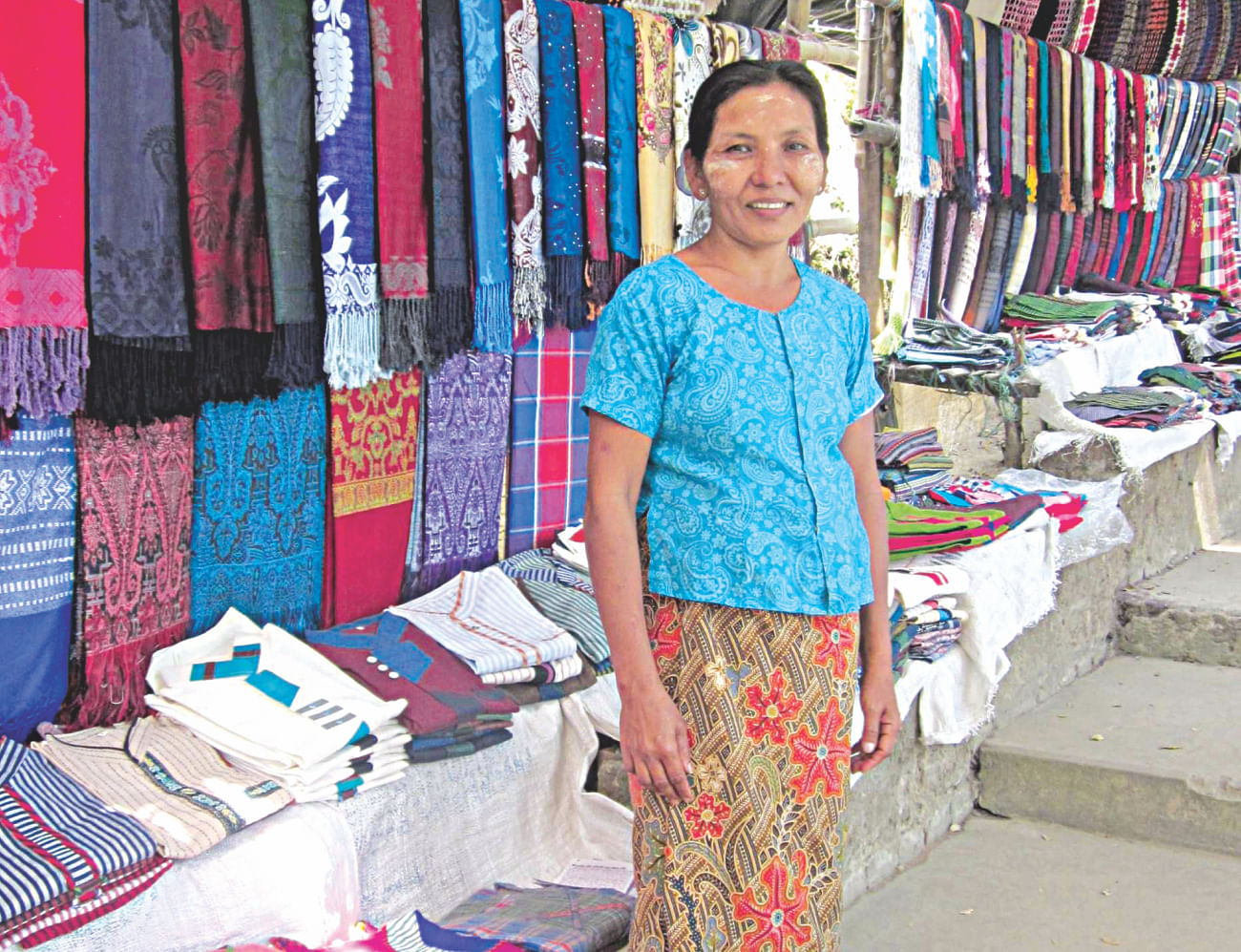The Textile Seller of Moheshkhali
The Textile Seller of Moheshkhali

“Sometimes I invite the customer to look,” says Liri, 40, a small-time seller of clothing and textile items, explaining her sales strategy. “'Bhai, this is homemade', I will say, or, 'This is pure cotton.' If they're convinced they might buy something.”
At other times customers make purchases without her saying anything. It's all a bit random. “It depends on luck,” she says.
But more than luck the ethnic Rakhine widow relies on a steady stream of passersby. Without them, there's nobody to see her wares.
Business can guide us to a better future. Large businesses, at their best, offer employment, improved goods and services, and contribute to the national well-being. For the millions of small-scale enterprises across the country meanwhile, the goals are closer to home. For Liri, business is about survival.
At about 9 a.m. each day she arrives at the steps leading to the famous Adinath Temple on Cox's Bazar's Moheshkhali Island. There, she unpacks her stock of shirts, two-piece suits, sheets and bed covers, setting up her stall among several others in readiness for the day's trade. While some items are purchased on the open market others are bought from Rakhine weavers in Moheshkhali, and some Liri weaves herself. She took a Tk 50,000 loan this year to buy stock.
In a normal month profits reach Tk 3,000, enough to cover loan repayments and feed herself and her son, who works as a mechanic. The best profits, of up to Tk 5,000 for the month, are made during festivals when hundreds of visitors and pilgrims crowd the temple steps.
“When sales are good,” says Liri, “We eat fish with our rice. Now we are lucky to eat green chilli, vegetables and salt. Everyday I'm making a loss.”
The current political turmoil means only a handful of visitors reach the temple daily. By that afternoonLiri had made no sales, and the on day before she sold just two items worth Tk. 400.
She says Bhagawan – God – is running her family these days.
Of course she's hardly the only small entrepreneur to suffer. When you think of the initiative involved in establishing any business, of the courage it must take for people like Liri to embark on a venture, of the struggle to bring themselves just a little further out of the clutches of poverty, the current transport embargo is really a kick in the teeth.